What is a credenza? Designers explain how this versatile piece differs from a sideboard and a buffet
The words might be used interchangeably, but did you know there are subtle differences between each of these storage solutions? We ask the experts all you need to know about the credenza
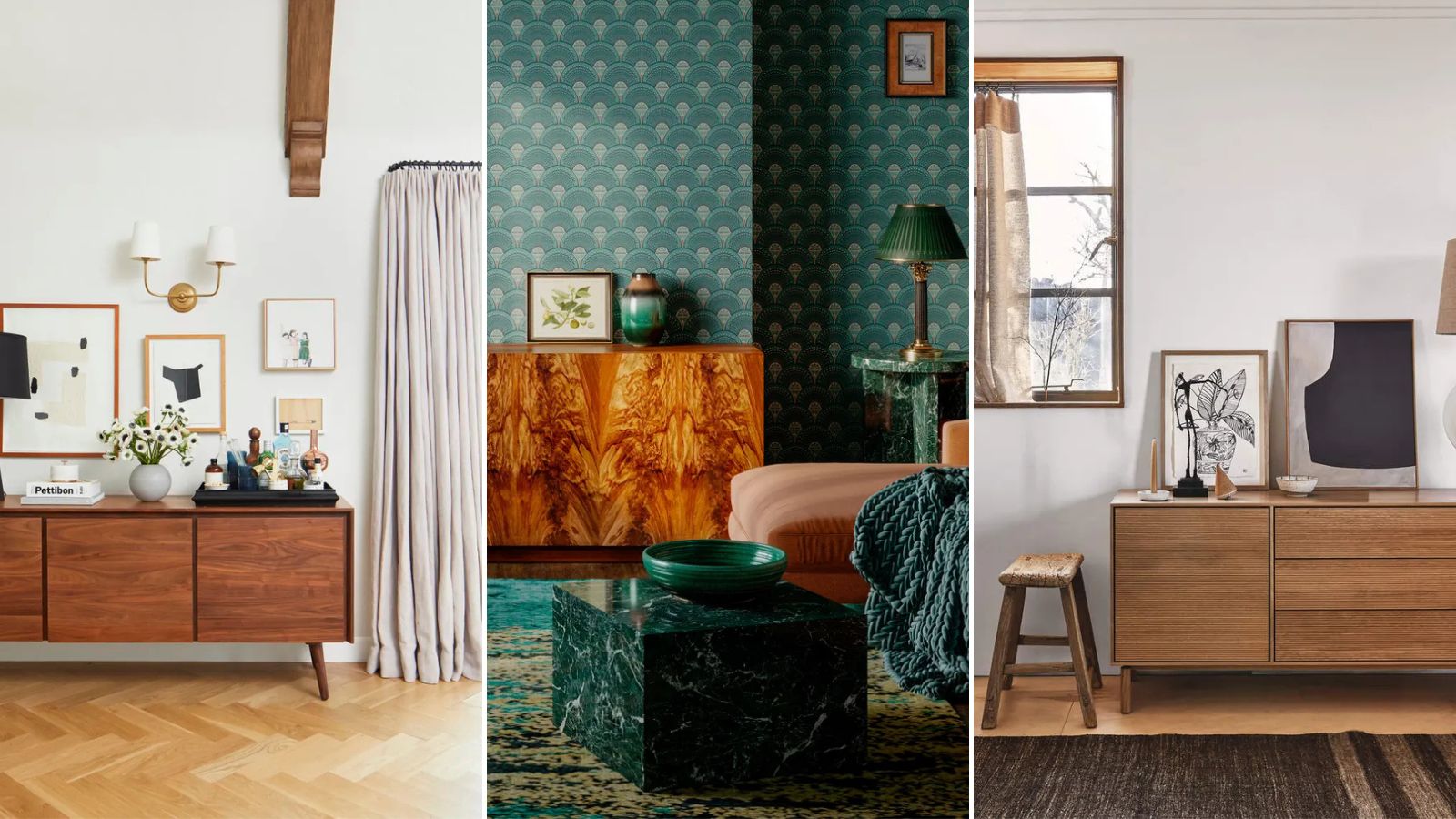

We’re always looking for ways to make the most of storage solutions within our home, and finding the right piece of furniture to suit your needs is often considered the best place to start.
But with so many shapes, sizes and styles to choose from, it can be hard to know which piece is right for you – and it's not a decision to take lightly. Whether you place a vintage buffet, topped with a lamp and succulents, in your hallway – or choose a chic credenza to give your living room a stylized focal point, your furniture and how you dress it can, quite literally, make or break your room. So, before deciding which piece to invest in, it's important to understand what sets each option apart.
Here we are focusing on the credenza – a popular storage idea that's similar to a sideboard or a buffer, but there are key differences, some subtle and some not so. We asked designers to explain what a credenza actually is, how it’s different from other cabinet styles so you can make the right decision for your home.
What is a credenza?
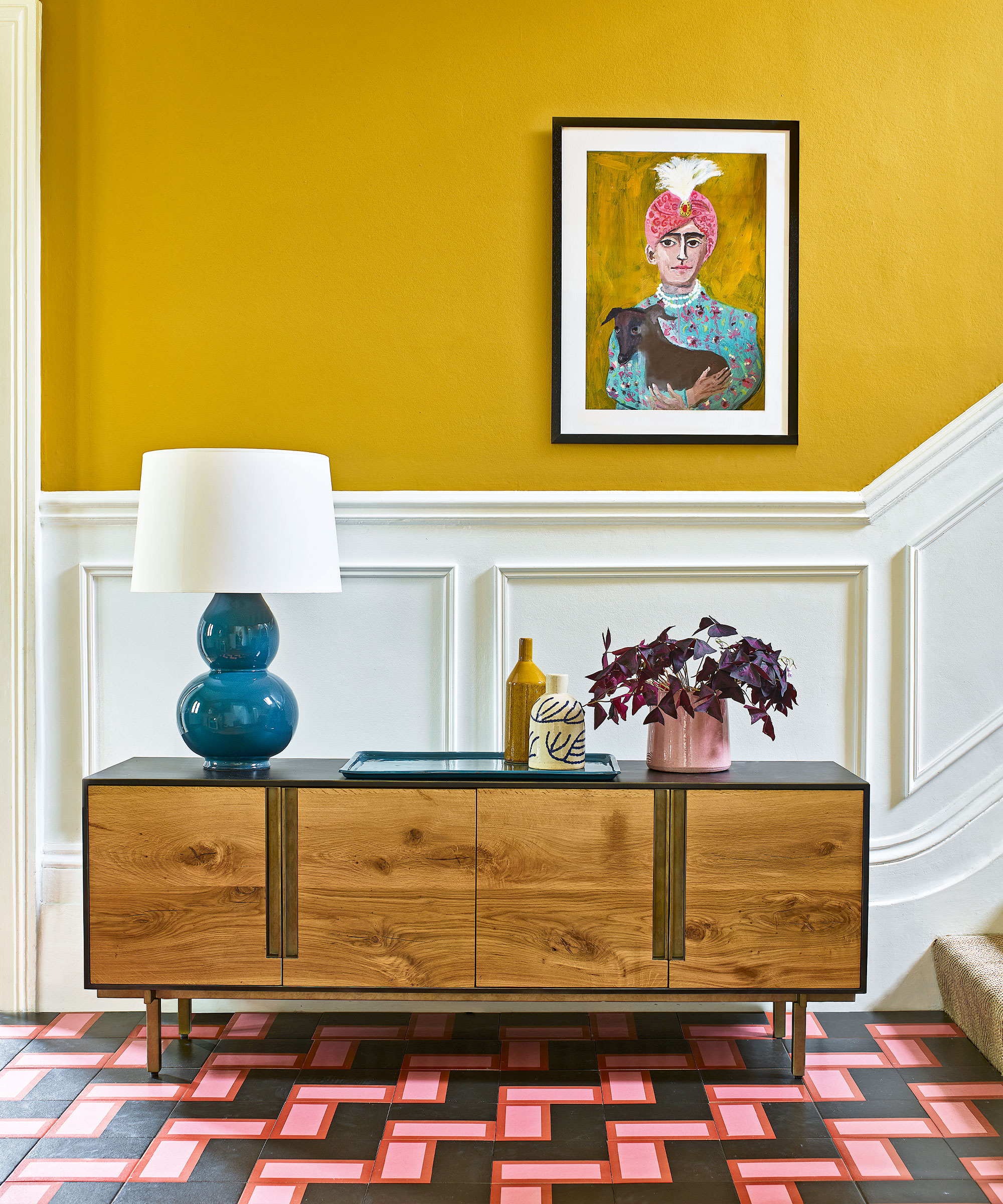
Many of us would be forgiven for using the word credenza when we actually mean to refer to other storage cabinets. ‘Sideboards, buffets, and credenzas are very similar, and often the terms are used interchangeably,’ explains designer Kathy Kuo. That said, there are some subtle differences that can help us differentiate between pieces.
‘The word origin of the word credenza was used to refer to where a servant would taste foods to ensure safety before their nobles ate,’ explains Sandro Chiavaro, woodworker and cabinet maker at Chiavaro Design. He continues, ‘the word is rooted in the middle ages and relates to believing and trust.’
With this history in mind, it's no wonder that credenzas can often be seen in kitchens and dining rooms. Simply put, a credenza is a ‘short-legged decorative storage solution for plates and other dinnerware,’ says Sandro. However, its uses do not end there.
‘A credenza is a cabinet-style piece that usually features a combination of shelves and draws inside behind cabinet doors. They're usually wide, though not super-tall or deep, so you can easily place them against a wall, and its drawers mean it could be used anywhere throughout the home,’ adds Kathy. But what makes them different from other cabinets?
Credenza vs Buffet vs Sideboard
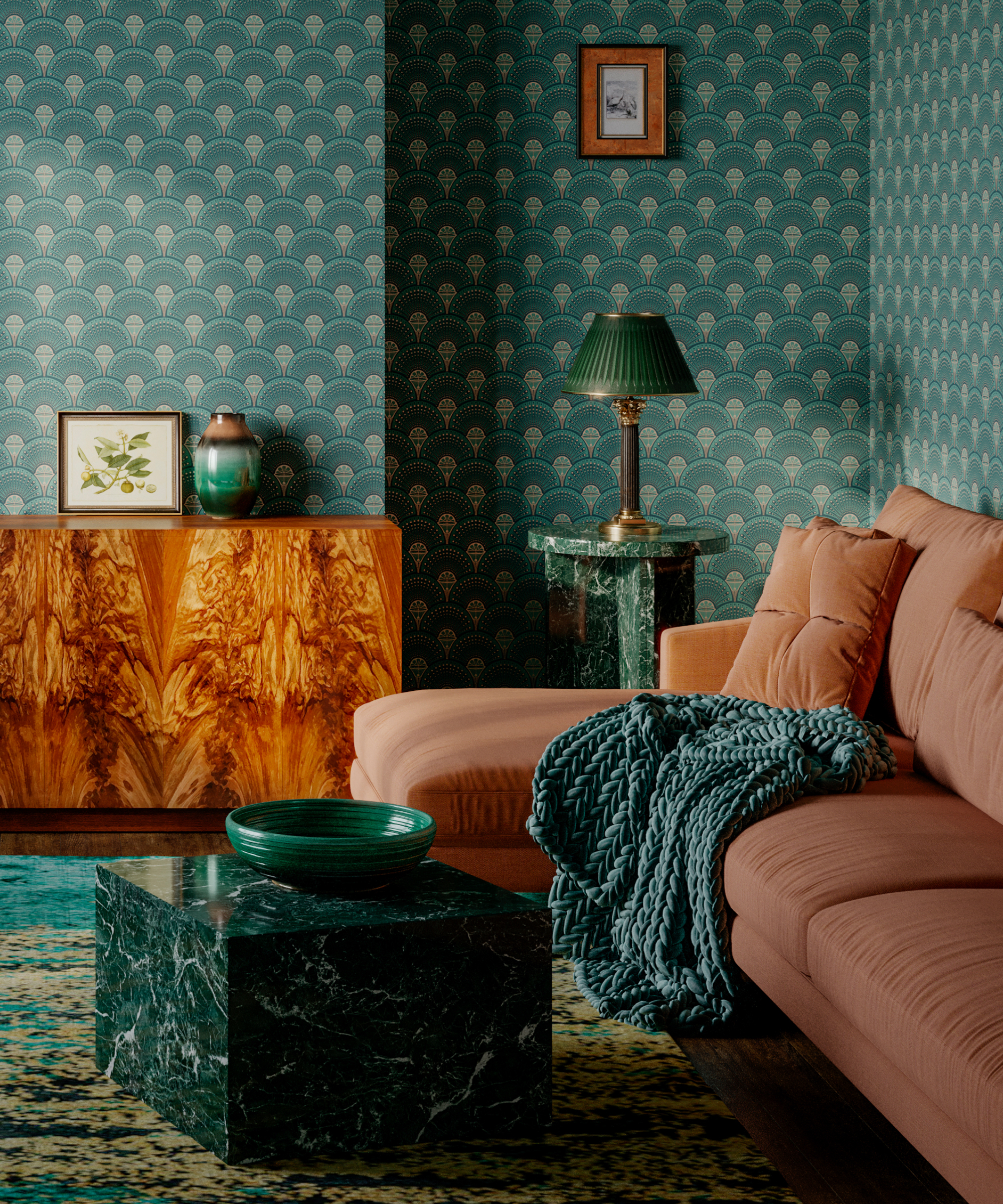
As mentioned, all three items are very similar. But, experts and interior designers can point out some key differences.
‘I see a sideboard as a monolithic floor-to-counter storage unit,’ explains Sandro. ‘While a credenza is shorter and can be a built-in cabinet or a freestanding furniture piece.’ As for a buffet, Sandro continues, ‘A buffet is taller and has longer legs; it is very similar to a sideboard.’
Kathy agrees. ‘I tend to think of a sideboard or buffet as more of a cabinet of shelving that you would use for dishes and linens,’ she says. ‘Whereas a credenza will also include drawers and could really be used anywhere in your home.’
'Unlike sideboards or buffets, which are typically associated with dining and often come with taller profiles, credenzas maintain a lower, streamlined design that also fits beautifully in living rooms, hallways, or even offices,’ adds Helen Pett, brand ambassador for Arteriors.
So, one easy way to spot the difference between storage options is to look out for height. Credenzas are typically lower to the ground with shorter legs, compared to the slightly taller option of a sideboard or buffet. Another tell-tale sign is the drawers that tend to be unique to a credenza.
The drawers that often come inside a credenza mean that the piece can lend itself perfectly to any room within your home, making these units a more versatile choice when it comes to storage solutions. When you’re not just limited to shelving, you are able to elevate the way you style your unit – both externally and internally – to make it suit your space.
Styling a credenza
Of course, dressing the furniture within your home is a matter of personal preference, and there are a lot of factors to take into consideration. For example, you should keep your color scheme in mind, understand the look you want to achieve through styling, and think about any accessories that might help you to accentuate certain features. Not sure where to start? Our experts share their top styling tips to elevate your chosen piece.
1. Balance practicality with aesthetics
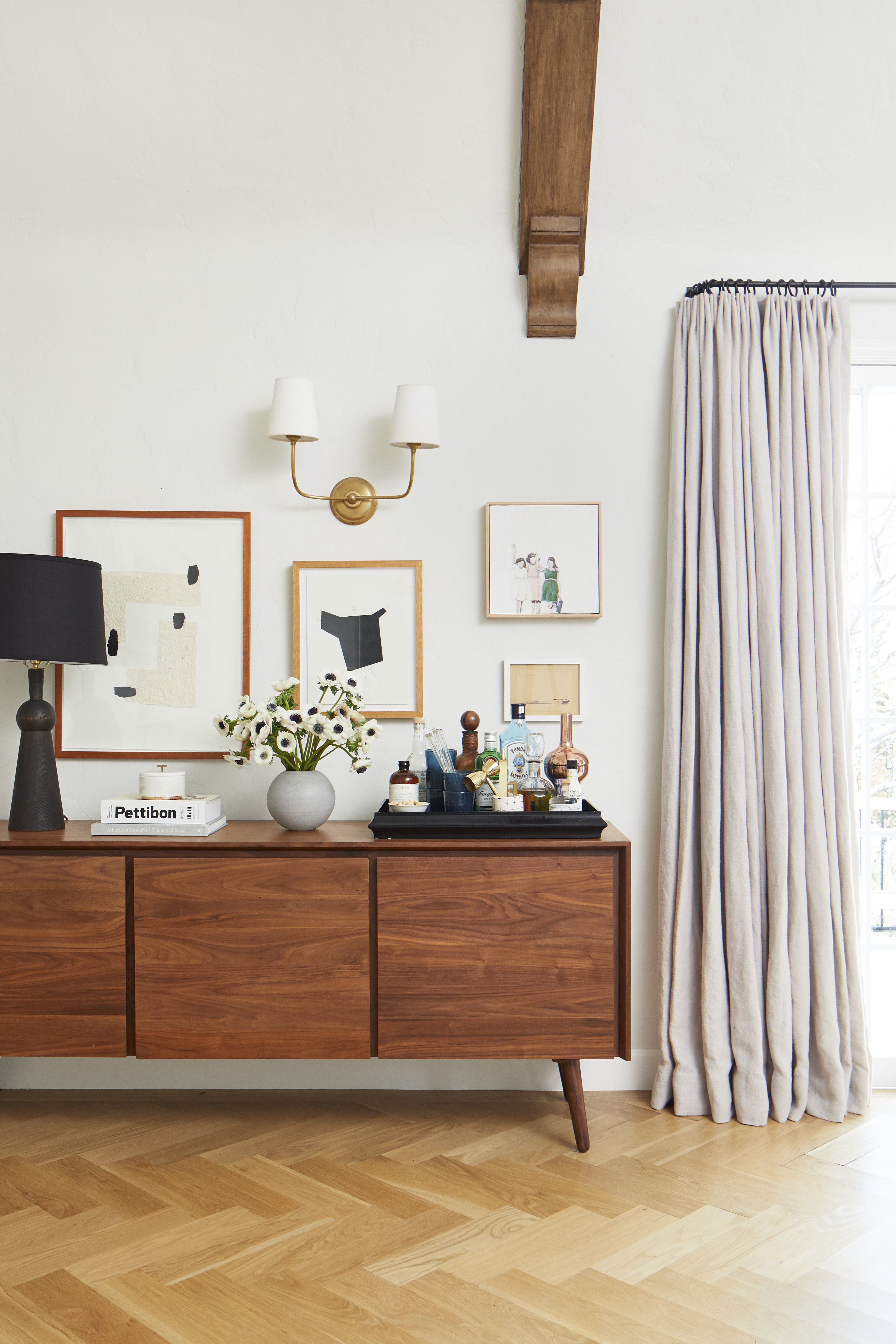
‘There are a ton of ways to style a credenza and it all depends on what you are using it for,’ shares designer Emily Henderson. For her, it's all about experimenting. ‘I love getting a large tray to help corral things like bar tools. Also, make sure to play with varying heights of objects and try not to display too much because it will look more chaotic than intentionally styled,’ she advises.
Similarly, Helen also suggests keeping your credenza practical. She says, ‘Whether modern or vintage-inspired, a well-chosen credenza can be a sophisticated, practical addition to your home. If it’s placed in a dining area, keep it functional with easy-access dining essentials or a drinks tray.’
But, functional design doesn’t have to be boring. ‘Consider layering decor above and around your credenza. Use a statement mirror or artwork as a backdrop, and add balance with vases, sculptures, or candles on one side,’ Helen recommends.
2. Mix and match your accessories
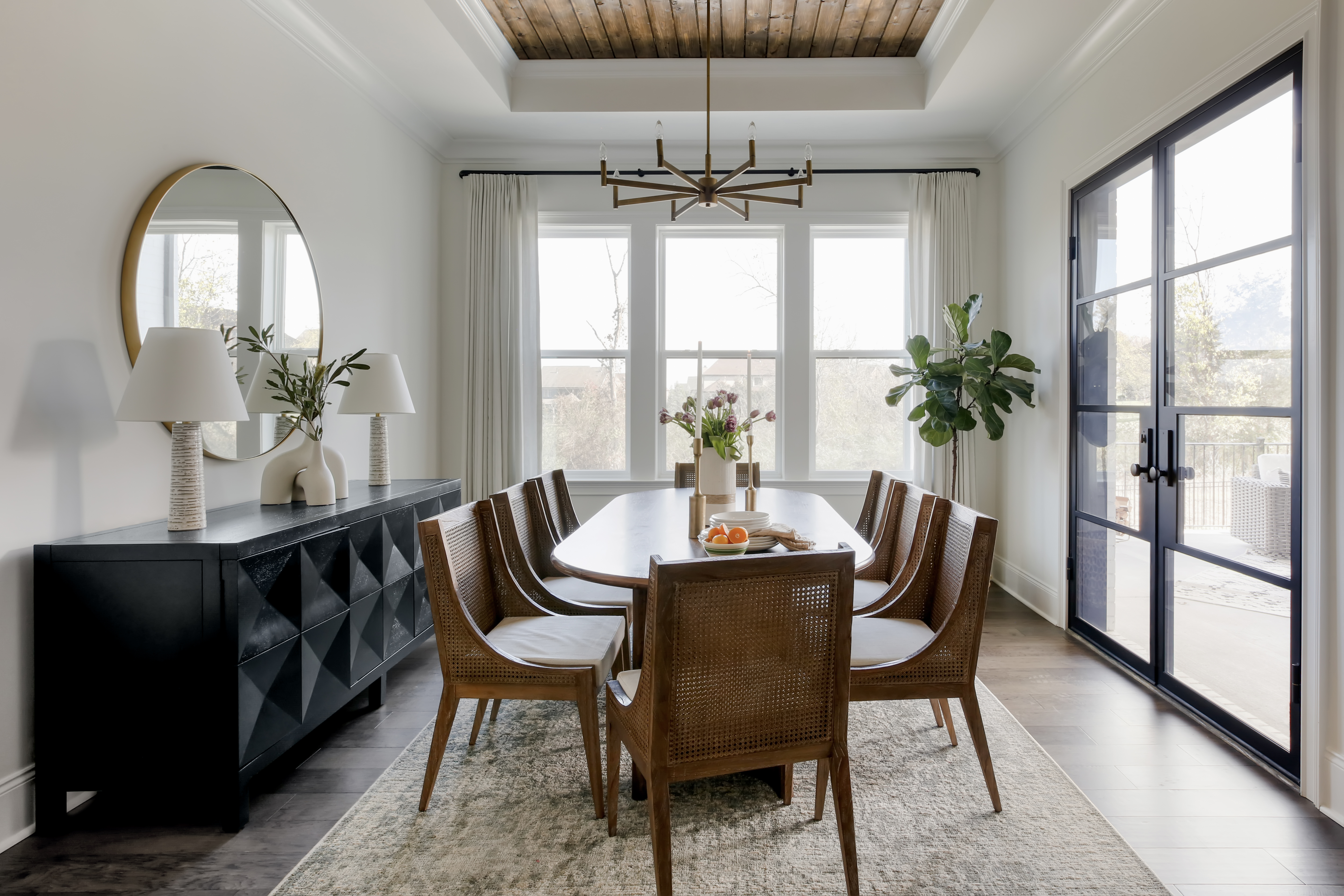
Another way to make the most of your cabinet is to experiment with an eclectic mixture of accessories. ‘One great thing about a credenza is that you have all of the surface space on top to have fun with styling,’ says Kathy.
‘I love the idea of mixing and matching practical items – like barware, wine chillers, and crocks – and decorative ones, vases of seasonal florals, small sculptures, framed photos, and stacks of coffee table books, for a look that feels lived in and that has purpose,’ she adds.
3. Add some height
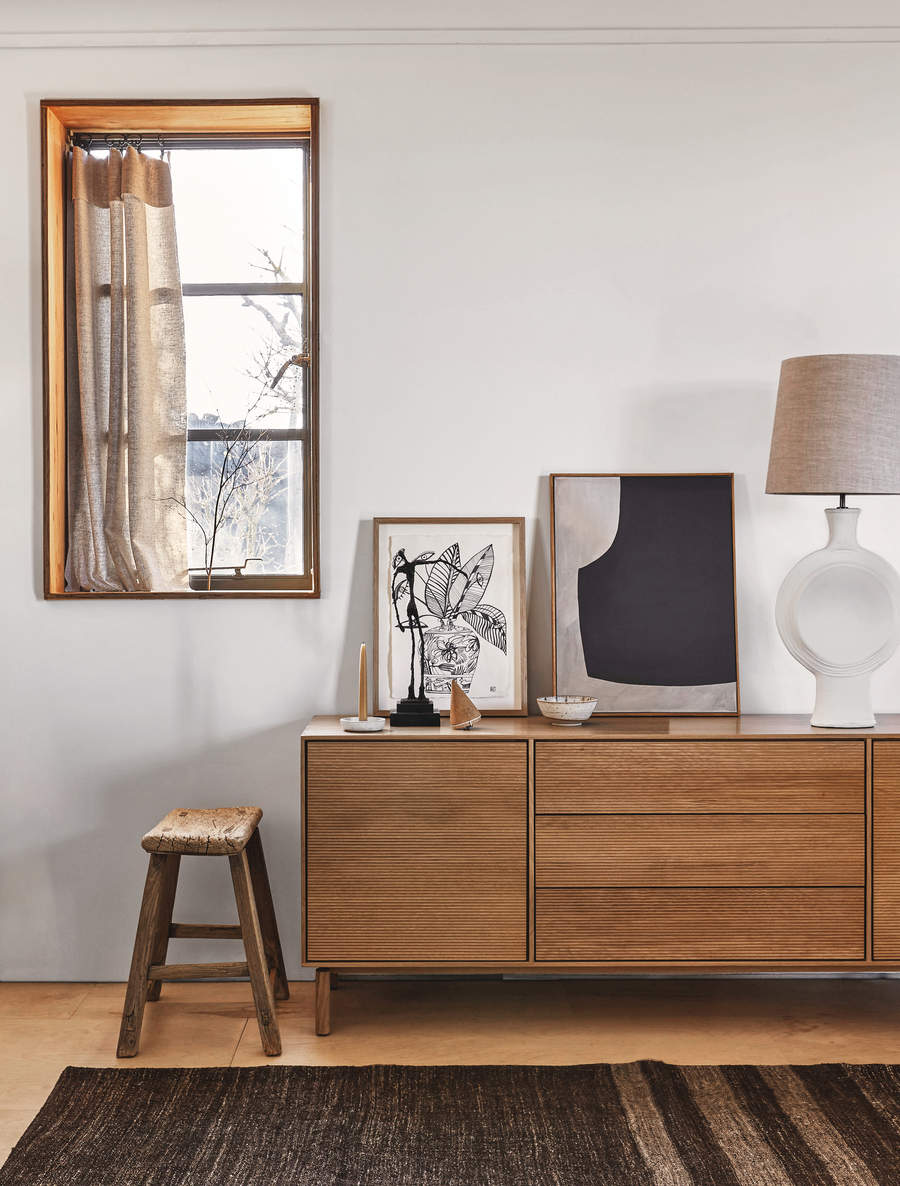
As discussed, credenzas typically sit lower than a sideboard or cabinet. So why not add some height when styling?
‘Seasonal florals, an art book on a stand, heirloom ceramic bowls, and hurricane candles can all help add height and make your credenza a centerpiece of a room,’ suggests Sandro. ‘Hanging a special art piece or mirror above if it's placed against a wall will also garner attention,’ he adds.
Should you choose a credenza?
Whether you opt for a credenza, or stick to a sideboard, only you can decide which piece of furniture to purchase. But, no matter which you pick, there are some elements that you should remember to take into account.
‘When shopping for a credenza or sideboard, look for durable materials, such as wood or metal, as these are functional pieces for storage as well as stylish additions to a room,’ says Helen. But, in some cases, you can find long-lasting, elegant options. ‘Credenzas with interesting textures, like woven fronts, marble tops, or mirrored panels, can add extra character,' adds Helen.
Kathy agrees with this advice, reminding us to always consider the quality of the piece. ‘As with any piece of larger anchor furniture, you'll want to consider the size, design style, and level of quality and craftsmanship. A well-designed and well-made credenza should last you for many years, so it's worth it to spend a little more on one you know is expertly crafted,’ she says.
As well as thinking ahead, it's also important to make sure your storage unit will be able to serve the space you’re in now. ‘Just like any piece of furniture, you want to make sure that it’s practical for your life,’ says Emily. ‘Check that it’s large enough to hold what you plan to store in it. Everything else is style preference.’
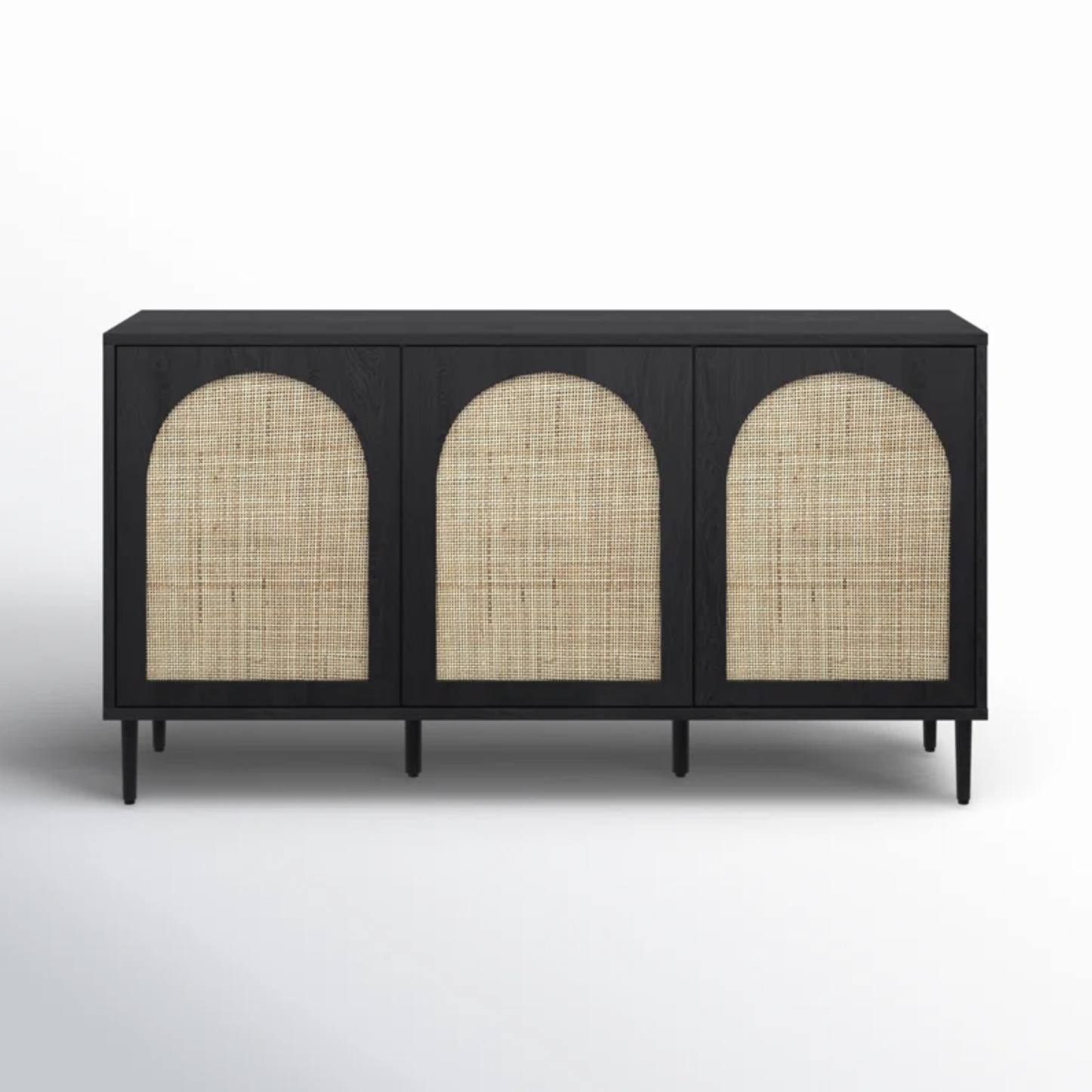
This sideboard is currently massively on sale at Wayfair and has hundreds of rave reviews. The curves doors and rattan finish nods to a few key trends of 2025, but the shape and colors are timeless.
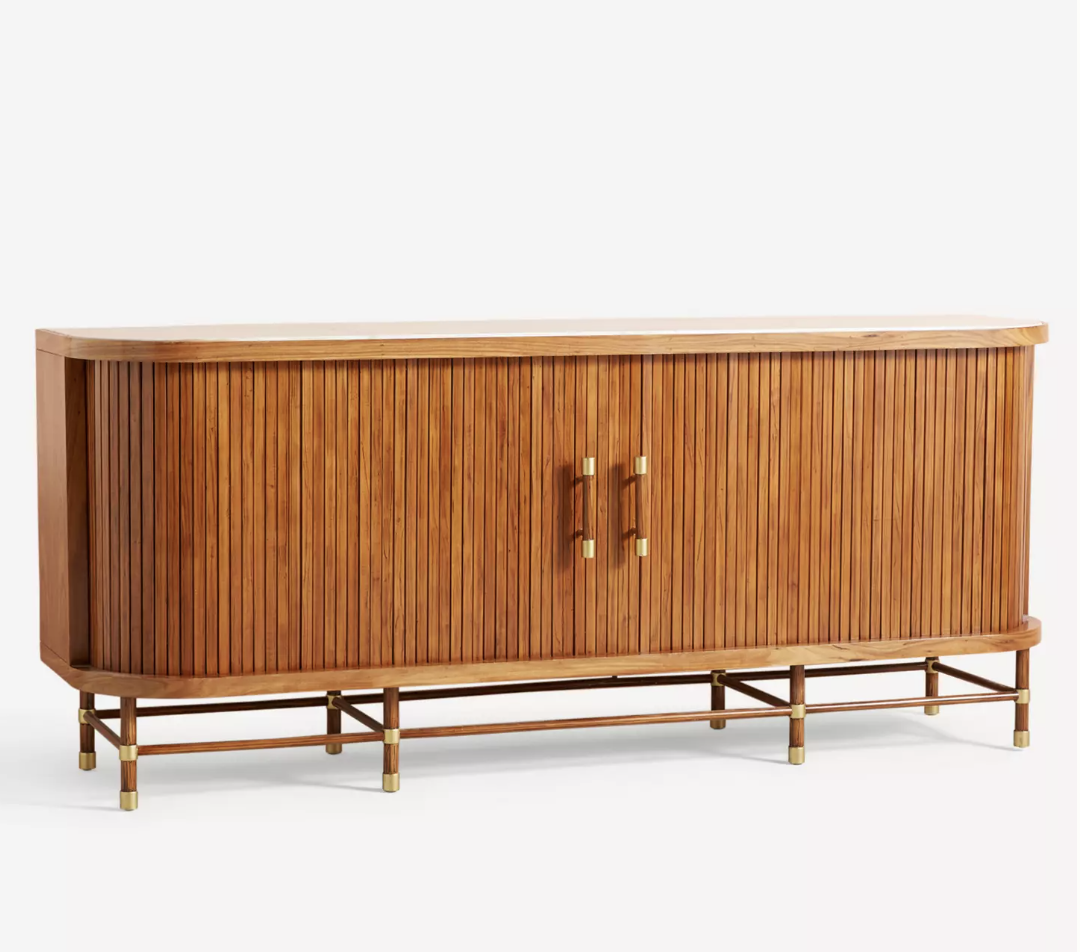
This would be the perfect storage for any room, but would work particularly well in a dining room or kitchen to house extra crockery. The mid-century silhouette is giving a home bar feel too so you can use the surface area to store drinks and your nicest glassware.
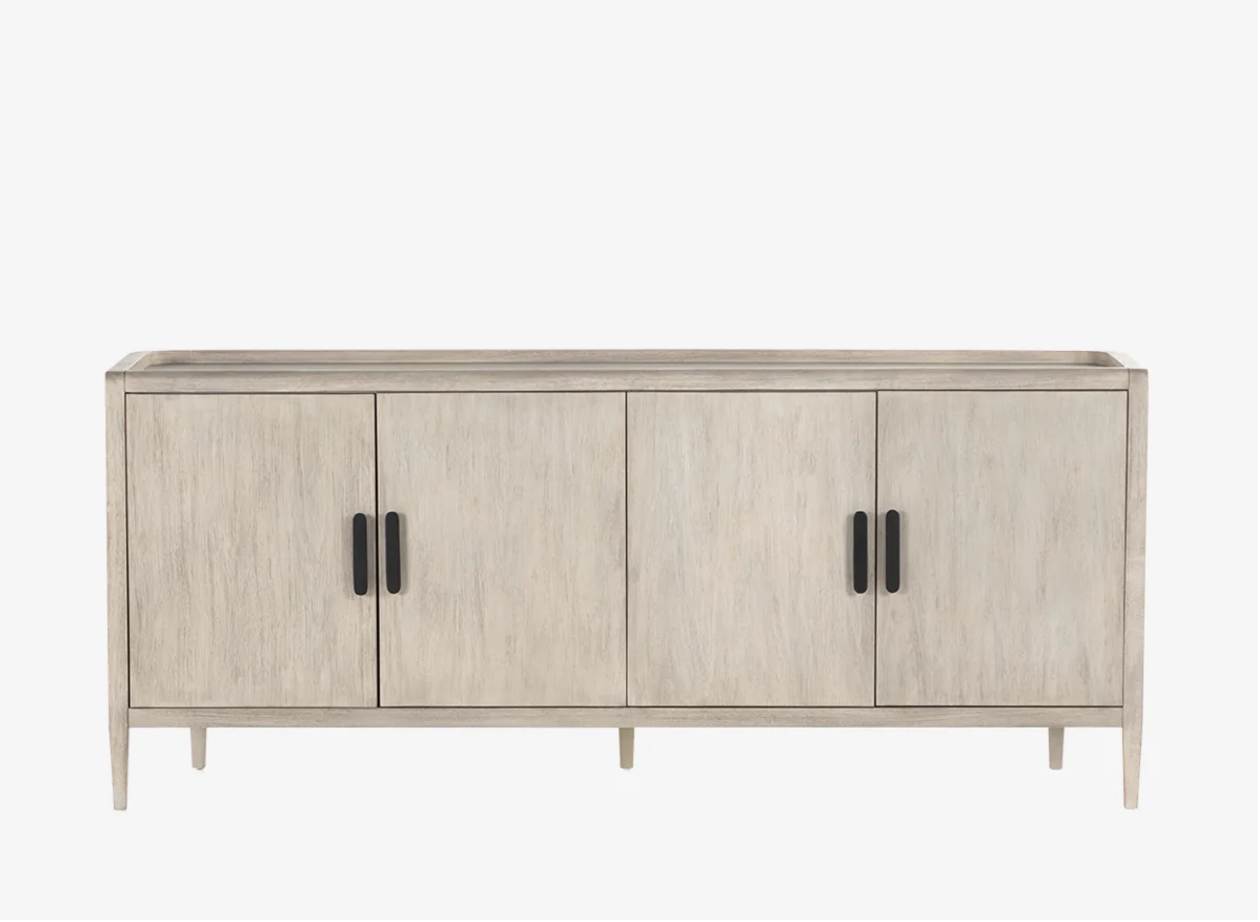
Classic and timeless, this piece could work in any room in your home and can be styled to suit any aesthetic too. The shelves inside are adjustable to suit whatever you want to store within.
While the differences may be subtle, the distinctions between credenzas, sideboards, and buffets make sense. The low and streamlined features of a credenza make it a versatile choice to add character to any room within your home. Whereas the taller profile associated with buffets and sideboards may limit where you’re able to place them. The item you choose is a decision that only you can make, but with our expert advice ringing in your ears, we’re sure you’ll choose wisely.
Sign up to the Homes & Gardens newsletter
Design expertise in your inbox – from inspiring decorating ideas and beautiful celebrity homes to practical gardening advice and shopping round-ups.

Maddie Balcombe is the Editorial Assistant at Ideal Home. Before starting this position, she completed a BA in English Literature and Journalism, and an MA in Magazine Journalism at Cardiff University. With a love for all things design, wellbeing and lifestyle content, Maddie loves to stay on top of the latest trends and has written for a number of titles including Woman & Home, Women’s Health, and Time Out.
-
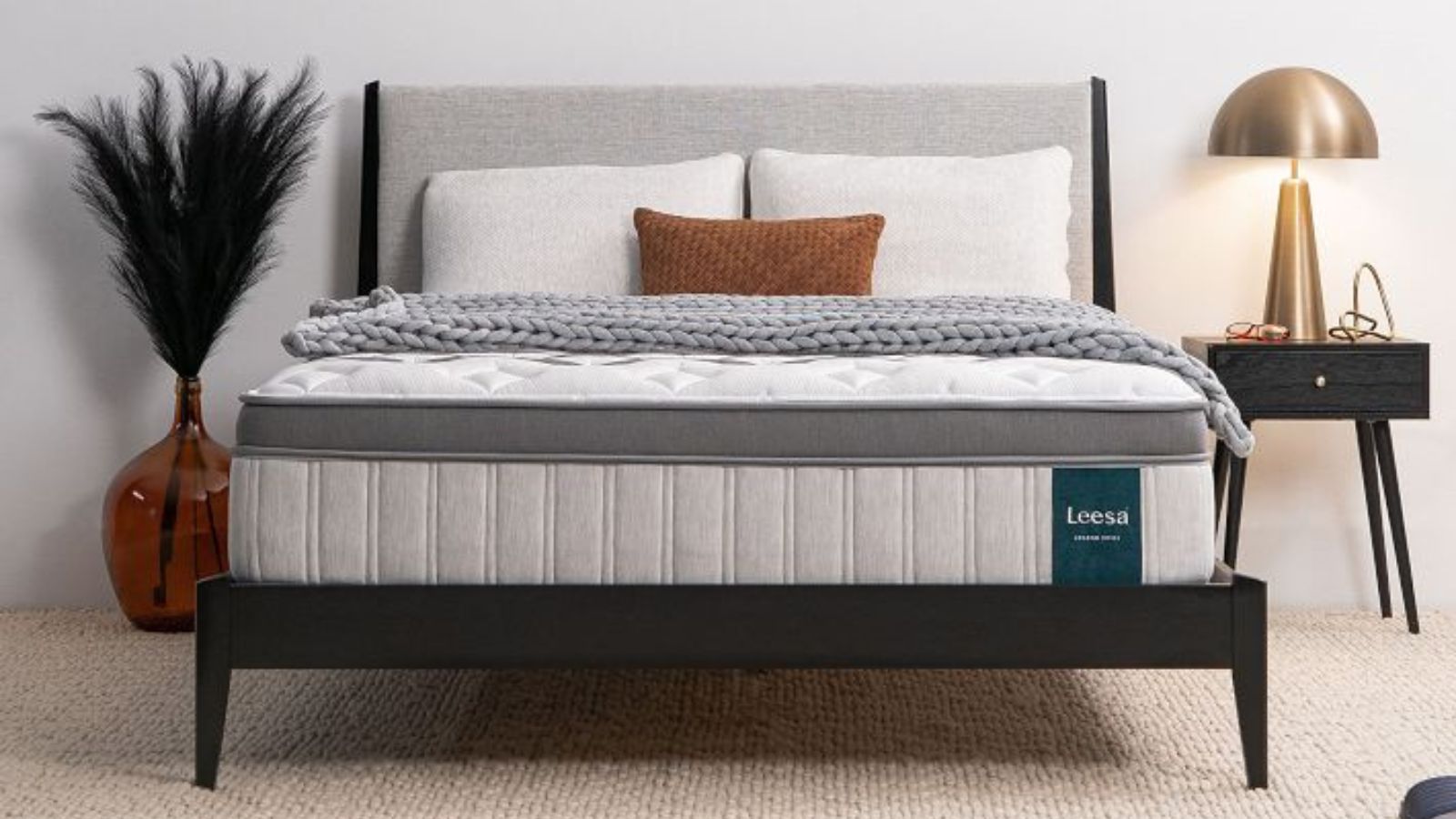 This hot sleeper just found the perfect cooling mattress that's ended the sleepless summer nights – turns out $3,000 is the price you pay for an incredibly cool night's sleep
This hot sleeper just found the perfect cooling mattress that's ended the sleepless summer nights – turns out $3,000 is the price you pay for an incredibly cool night's sleepThe Leesa Legend Chill Hybrid Mattress might be an investment, but I think it's worth it to finally find something that actually keeps me cool throughout the whole night
-
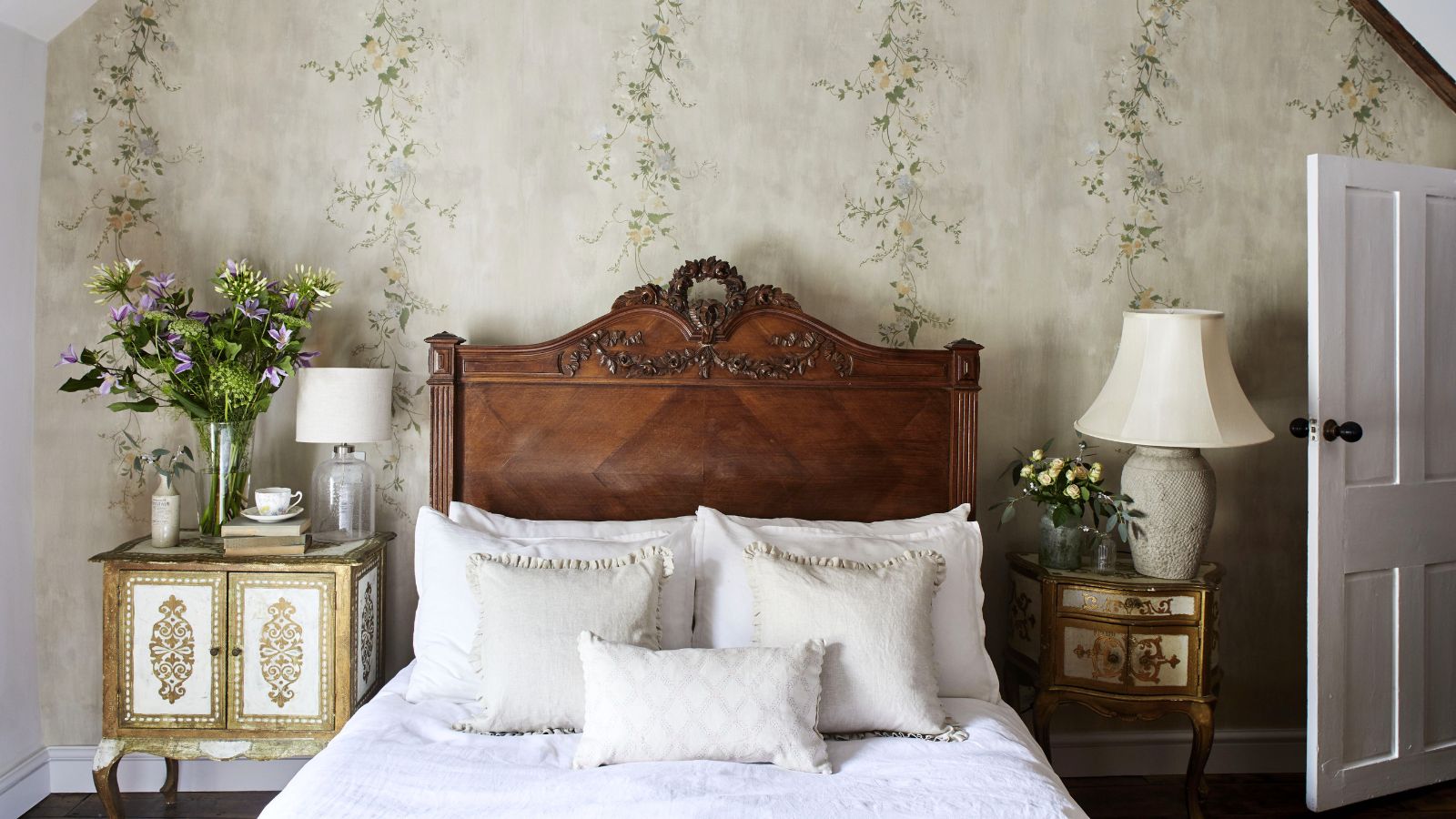 I'm an interior stylist whose job is to make rooms look nicer in an instant – these are the 5 items I always add to a bedroom to make it look 10x better
I'm an interior stylist whose job is to make rooms look nicer in an instant – these are the 5 items I always add to a bedroom to make it look 10x betterI have styled plenty of bedrooms in my time as an interior stylist, and these are the 5 pieces I reach for time and time again to instantly elevate the room